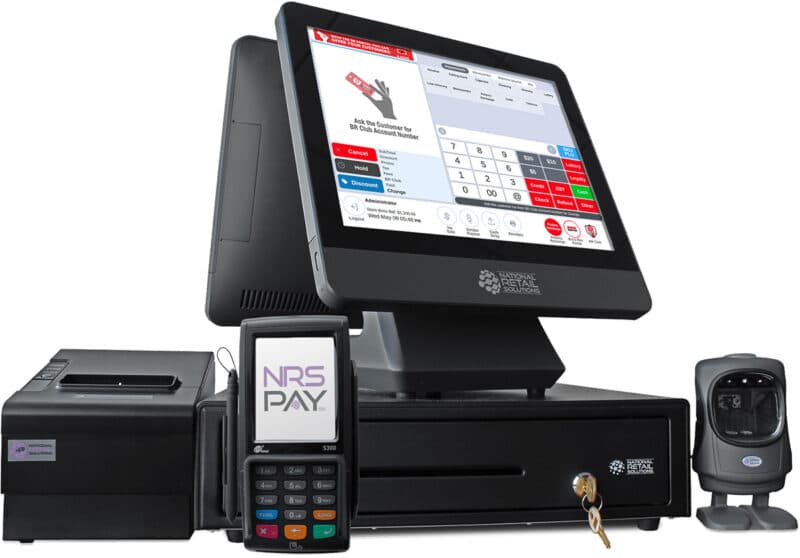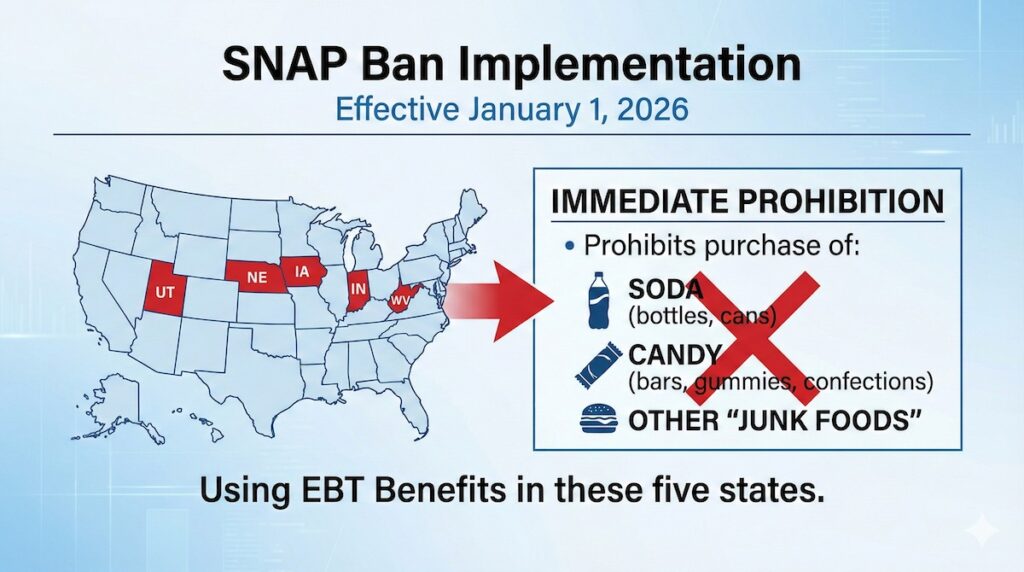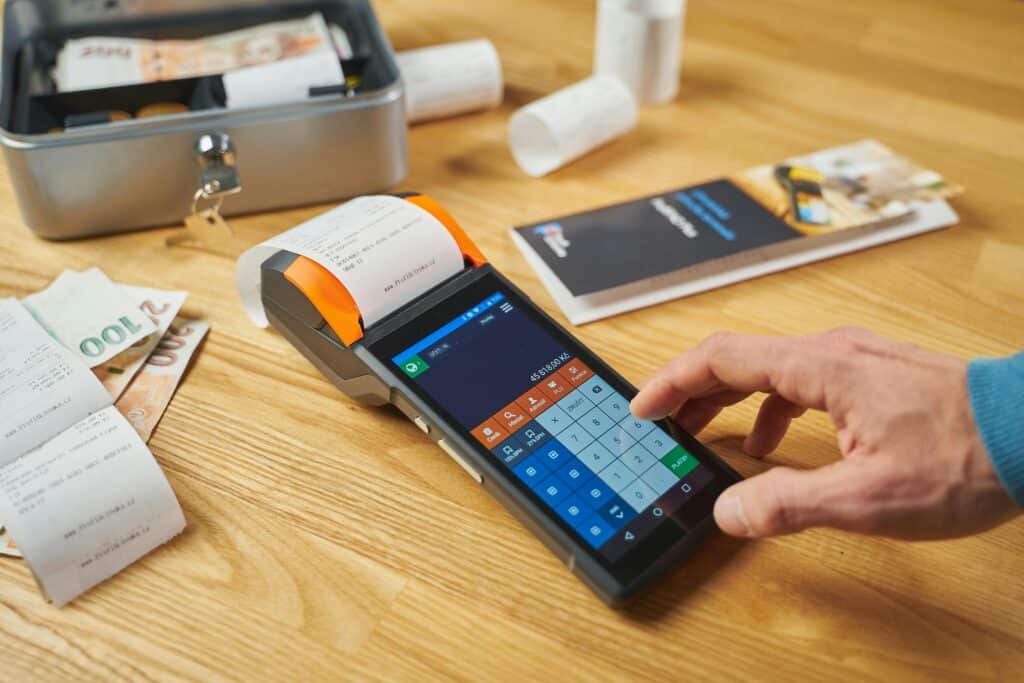- The benefits of POS systems are reshaping how businesses, both large and small, manage their daily operations.
- In this article, we’ll explore how point-of-sale systems can assist unexpectedly.
1. Enhanced Inventory Management

- Real-Time Stock Monitoring: Stay updated on inventory levels instantly, know what’s available and needed, and sell fast.
- Trend Insights: Understand sales trends to decide what products to stock.
- Efficient Stock Management: Avoid overstocking and reduce unnecessary costs, optimizing space and resources.
It makes keeping track of your stock a breeze. Imagine knowing exactly what you have, what you need, and what’s selling fast, all in real time. This isn’t just about counting items; it’s about understanding your business better.
A good POS system can show you trends, like which products are popular and which ones aren’t moving. You can make smart choices about what to order and when keeping your customers happy because you’ve always got what they need.
You’ll also reduce the chance of overstocking items that don’t sell, saving you money and space.
2. Faster Transactions

- Speedy Checkouts: Provides quick and efficient transaction processes for customers.
- Increased Customer Throughput: Enables staff to handle more customers in less time, enhancing business efficiency.
- Improved Customer Satisfaction: Ensures fast transaction service, encouraging repeat business.
One of the best things is how quickly you can serve your customers. With everything digital and at your fingertips, checking out becomes a fast, smooth process. It’s great for customers in a hurry and don’t want to wait in long lines.
It also means your staff can handle more customers in less time, boosting your business’s efficiency. When customers see they can get in and out quickly, they’re more likely to return.
It ensures that every transaction is done swiftly, no matter how small or big, leaving customers and staff happy.
3. Accurate Sales Tracking
- Comprehensive Sales Data: Automatically records every sale, return, and exchange for up-to-date business insights.
- Strategic Inventory Adjustments: Enables informed adjustments of stock and marketing strategies based on sales performance.
- Data-Driven Decision Making: Provides valuable data for critical business decisions, like seasonal planning and new product introductions.
Every sale, return, and exchange is recorded automatically, meaning you always have up-to-date information about how your business is doing. This makes it easier to track which items are selling well and which aren’t so you can adjust your stock and marketing strategies accordingly.
Plus, this data is invaluable when it comes to making big decisions about your business, like planning for busy seasons or introducing new products. You’re not just guessing about your sales; you have the facts you need to make smart choices.
4. Improved Customer Experience

- Enhanced Transaction Efficiency: Speeds up transactions for a smoother customer experience.
- Personalized Customer Interactions: Stores customer preferences and purchase history for tailored recommendations and service.
- Accurate and Hassle-Free Service: Ensures efficient service and accurate billing, increasing customer satisfaction.
A modern sales counter greatly improves the customer experience by speeding up transactions, providing accurate pricing, and even allowing personalized interactions.
For instance, the system can store customer preferences and purchase history, giving your staff more personalized recommendations and service. This kind of attention makes customers feel valued and encourages them to return.
Also, with efficient service and accurate billing, customers leave satisfied, knowing they got what they needed quickly and without hassle.
5. Efficient Employee Management

- Automated Time Tracking: Simplifies tracking employee hours, reducing paperwork.
- Performance Monitoring: Offers real data for assessing and managing employee performance.
- Enhanced Focus on Service: Employees can concentrate more on customer service and sales, improving business efficiency.
It can track hours worked, monitor sales performance, and even help manage schedules. This means you spend less time on paperwork and more time on growing your business.
Employees can easily clock in and out directly through the system, and you get a clear picture of their performance based on real data. This information is helpful for giving feedback, planning training, and rewarding top performers.
Employees can focus more on customer service and sales, making your business run more smoothly and efficiently.
6. Easy to Use Interface

- Quick Learning Curve: Enables employees to learn and use the system easily, reducing training time and costs.
- Efficient and Accurate Transactions: Facilitates efficient sales processing with reduced error likelihood.
- Consistent Customer Service: Ensures uniform service quality regardless of the staff member at the register.
The user-friendly interface is a major benefit. Employees can quickly learn how to use it, which reduces training time and costs. Even new staff members can start processing sales and assisting customers with minimal guidance.
A system that is easy to navigate ensures that transactions are processed efficiently and accurately, reducing the chances of errors.
It also helps maintain consistent customer service, regardless of who operates the register.
7. Better Financial Management

- Accurate Tracking: Ensures all financial transactions are accurately recorded.
- Budget Management: Helps in better budgeting and financial planning.
- Profit Analysis: Assists in understanding profitability and financial health.
You can closely monitor your revenues and expenses with every transaction accurately logged. This accuracy is essential for budgeting and planning your financial future.
You can easily track which areas of your business are most profitable and which may need more attention.
The system also simplifies tasks like tax preparation, as you have all the necessary financial data organized and readily available.
A point of sale is a financial dashboard, giving you a clearer picture of your business’s financial health and helping you make more informed money management decisions.
8. Effective Promotion Management

- Targeted Campaigns: Easily set up and track targeted promotional campaigns.
- Customer Insights: Gain insights into customer preferences for more effective promotions.
- Sales Boost: Use promotions to drive sales and customer engagement.
Effective promotion management allows you to set up and monitor promotional campaigns easily. For example, you can track how well a discount works in real time and adjust your strategy accordingly.
It also offers insights into customer buying patterns, helping you tailor your promotions to match customer preferences, which increases their effectiveness.
Well-managed promotions boost sales and enhance customer engagement and loyalty.
9. Enhanced Security Features
- Data Protection: Secure customer and business data from unauthorized access.
- Transaction Security: Safeguarding financial transactions against fraud.
- Compliance with Standards: Ensure compliance with legal and financial data security standards.
Enhanced security features protect sensitive customer information, like credit card details, and your business data from potential breaches. This security is vital in an age where data breaches are common and can be devastating.
With encrypted transactions, checkout registers reduce the risk of fraud during sales. They also help your business comply with various financial and data protection regulations, which is crucial for maintaining customer trust and avoiding legal issues.
10. Customization Options
- Tailored to Business Needs: Adjust features and settings to fit specific business requirements.
- User Experience: Enhance user experience with customized interfaces and workflows.
- Adaptability: Modify the system as your business grows and changes.
Customization options allow you to tailor the system to your specific needs, which means you can set it up in a way that makes the most sense for your business.
Whether customizing the interface to match your workflow, setting up special product categories, or adjusting pricing strategies, the system adapts to your way of doing things.
This adaptability is particularly beneficial as your business grows or changes direction.
11. Mobile Accessibility

- On-the-Go Management: Access and manage your business from anywhere.
- Flexibility in Sales: Conduct sales transactions outside the traditional store setup.
- Real-Time Updates: Stay updated with real-time business data on mobile devices.
Mobile accessibility is a game-changer for business flexibility and reach. You can manage your business from anywhere, whether on the floor, at a market, or even on vacation.
It means you’re not tied to a physical location, allowing you to make sales and check on your business from anywhere. It’s particularly valuable for businesses attending events, markets, or pop-up locations.
Real-time updates on your mobile device mean you’re always informed about your stock levels, sales, and staff performance. It enables quick decision-making and keeps you constantly connected to your business operations.
12. Improved Supplier Management

- Streamlined Ordering: Simplify and speed up the process of ordering from suppliers.
- Better Inventory Sync: Keep inventory levels in sync with supplier stock.
- Enhanced Communication: Facilitate clearer and more efficient communication with suppliers.
Improved supplier management is a notable advantage. It streamlines the process of ordering stock, ensuring you can quickly replenish your inventory as needed.
Keeping track of your stock levels will alert you when it’s time to order more or even automate the ordering process for items you regularly need.
The synchronization with supplier stock makes you more likely to avoid shortages or overstock situations.
Additionally, clearer communication with suppliers helps maintain a good relationship, ensuring smooth transactions and better terms in the long run.
13. Customer Loyalty Programs

- Encourage Repeat Business: Create incentives for customers to return.
- Personalized Rewards: Offer tailored rewards based on customer purchase history.
- Track Program Success: Easily monitor the effectiveness of loyalty programs.
Customer loyalty programs are an excellent feature. These programs encourage customers to return by offering them rewards for their repeat business.
You can efficiently set up and manage these loyalty programs with a POS system.
You have the ability to offer personalized rewards based on a customer’s purchase history, making the rewards more appealing and relevant.
Additionally, it allows you to track the success of your loyalty programs, giving you valuable insights into what works and what doesn’t.
14. Multi-store Integration
- Centralized Management: Manage multiple store locations from a single platform.
- Consistent Customer Experience: Ensure uniformity in pricing, promotions, and stock across all locations.
- Efficient Data Sharing: Share data seamlessly between different stores for better coordination.
Multi-store integration is a significant advantage, especially for businesses with multiple locations. It allows for centralized management of all stores, meaning you can oversee operations, track sales, and manage inventory across all locations from one system.
This integration ensures consistency in pricing, promotions, and customer experience across all your stores.
It also allows for efficient data sharing between locations, which is crucial for maintaining inventory levels and coordinating sales strategies.
You can ensure that your stores operate harmoniously with the others, leading to a more streamlined and effective overall business operation.
15. Reduced Human Error
- Minimized Mistakes: Automated processes reduce the chance of human errors.
- Accurate Pricing: Ensures customers are charged correctly.
- Efficient Accounting: Helps maintain accurate financial records.
The reduction of human error is a critical advantage. These systems automate various aspects of the sales process, minimizing potential mistakes. It’s particularly important regarding pricing accuracy, as customers expect to be charged correctly.
Pricing is always up-to-date and accurate, reducing the risk of pricing errors. Additionally, the accurate recording of sales transactions simplifies accounting tasks, ensuring that your financial records are precise.
The register saves time and money by minimizing mistakes and errors and contributes to a more professional and trustworthy image for your business.
16. Advanced Analytics
- In-depth Business Insights: Gain valuable insights into sales trends and customer behavior.
- Performance Tracking: Monitor the performance of products and promotions.
- Data-Driven Decisions: Make informed business decisions based on accurate data.
Advanced analytics offered by POS systems provide businesses with deep insights that are crucial for strategic decision-making. These systems analyze sales trends and customer behavior, clearly showing what works well and what needs improvement. This level of insight is invaluable for tailoring marketing and sales strategies to meet customer needs more effectively.
Additionally, the ability to track the performance of various products and promotions in real time helps businesses adjust their strategies promptly.
17. Time Savings

- Streamlined Operations: Automates routine tasks, making operations more efficient.
- Faster Service: Reduces waiting time for customers, enhancing their experience.
- Simplified Management: Eases administrative burdens, freeing up time for strategic activities.
Checkout systems bring significant time savings to businesses by streamlining operations.
Automating routine tasks makes day-to-day operations more efficient and enhances customer experience with faster service.
Additionally, simplifying administrative tasks allows business owners and managers to focus on strategic growth activities rather than getting bogged down in daily minutiae.
18. Detailed Sales Reports
- Informed Business Decisions: Provides data-rich reports for strategic planning.
- Sales Trend Analysis: Identifies patterns and trends in sales for better forecasting.
- Performance Overview: Offers a comprehensive view of business performance metrics.
Detailed sales reports generated by cash registers are invaluable for informed business decision-making. These reports offer a wealth of data, allowing business owners to analyze sales trends, customer preferences, and overall business performance in detail.
This level of insight is crucial for forecasting future sales, planning marketing strategies, and making informed choices about inventory and pricing. With these comprehensive reports, businesses understand their operations better, leading to more effective and strategic decisions that drive growth and success.
19. Increased Sales Opportunities
- Upselling Prompts: Suggests additional purchases to customers at checkout.
- Cross-selling Recommendations: Recommends complementary products based on buying patterns.
- Targeted Marketing: Utilizes customer data for personalized marketing and promotions.
Sales terminals open new avenues for increasing sales through features like upselling prompts and cross-selling recommendations.
Analyzing buying patterns, these systems intelligently suggest additional or complementary products to customers, enhancing their shopping experience while boosting sales.
Moreover, using customer data for targeted marketing allows businesses to create personalized promotions, further driving sales and customer engagement.
20. Customized Receipts
- Branding Opportunities: Allows for adding business logos and messages to receipts.
- Promotional Messaging: Enables the inclusion of special offers and discounts.
- Personalized Touch: Adds a personal touch to customer interactions, enhancing loyalty.
Customized receipts offer unique branding and promotional opportunities. Businesses can add their logos, custom messages, special offers, and discounts directly on receipts.
This reinforces brand recognition and provides a personalized touch to each customer interaction, fostering loyalty and repeat business.
21. Real-time Data Access
- Instant Information: Access crucial business data instantly from anywhere.
- Informed Decision Making: Make timely decisions based on current data.
- Enhanced Responsiveness: Quickly adapt to business trends and customer needs.
The ability to access real-time data is a significant advantage. It allows business owners and managers to access crucial information instantly, regardless of location.
This immediacy is invaluable for making informed and timely decisions, ensuring the business can quickly adapt to changing trends and customer needs.
22. Cost-Effective
- Reduces Overhead: Eliminates the need for multiple systems and manual processes.
- Long-term Savings: Offers financial benefits through improved efficiency and accuracy.
- Scalable Solutions: Adapts to business growth without significant additional costs.
It is a cost-effective solution for businesses. Cash registers reduce overhead by eliminating the need for separate systems and manual processes.
The improved efficiency and accuracy provided by these systems translate into long-term savings.
Additionally, their scalability allows businesses to grow without incurring significant extra costs, making them a financially prudent choice for small and large businesses.
23. Customer Feedback Collection
- Easy Feedback Gathering: Simplifies the process of collecting customer opinions.
- Valuable Insights: Provides insights into customer satisfaction and areas for improvement.
- Customer Engagement: Engages customers by showing their feedback is valued and acted upon.
A transaction terminal streamlines customer feedback collection, making it easier for businesses to gather valuable insights. The feedback is crucial for understanding customer satisfaction and identifying areas needing improvement.
Actively collecting and responding to customer opinions not only aids in refining business practices but also enhances customer engagement by demonstrating that their feedback is valued and considered in business decisions.
24. Ecommerce – Amplifying Retail Reach
- Seamless Online Integration: Effortlessly connects in-store and online sales.
- Unified Inventory Management: Maintains accurate stock levels across all channels.
- Enhanced Customer Data: Gathers comprehensive customer insights from online and offline interactions.
Ecommerce integration with POS systems offers a seamless blend of in-store and online sales, creating a unified retail experience. This synergy ensures real-time inventory accuracy and holistic customer data collection.
Businesses can now leverage insights from both physical and online stores to make more informed decisions, enhancing overall customer satisfaction and operational efficiency.
25. Integrated Panic Alarm Button
- Silent Alerts: Discreetly notifies law enforcement in emergency situations.
- De-escalation Feature: Helps in calmly managing potentially dangerous scenarios.
- Cash Drawer Access: Automatically opens cash drawers for compliance in high-risk situations.
An integrated panic alarm button in POS systems is a critical safety feature. In the event of a security threat, it allows staff to discreetly notify law enforcement, ensuring that help is on the way without escalating the situation.
This feature is particularly valuable in managing potentially dangerous scenarios calmly and effectively. The cashier no longer has to reach under the counter to activate the call for help; the button is housed within the touchscreen interface.
Additionally, the automatic opening of cash drawers in such situations can aid in compliance, potentially averting more serious incidents.








